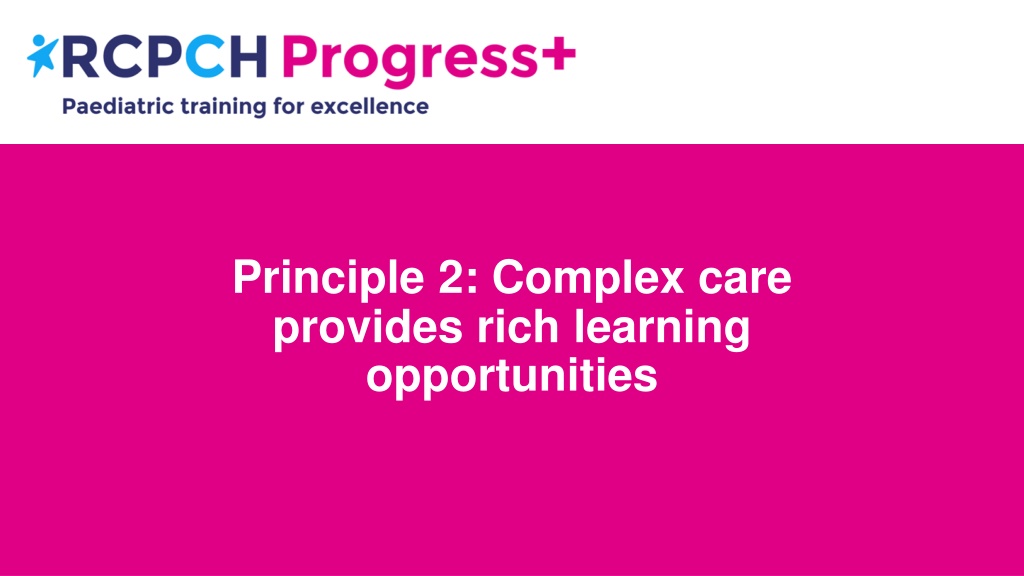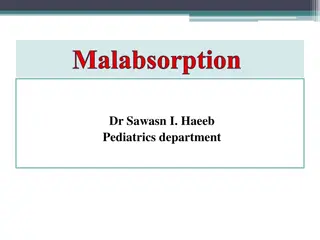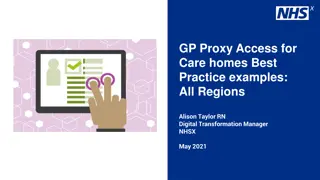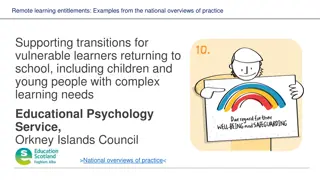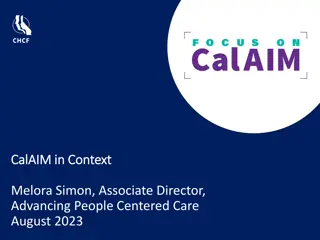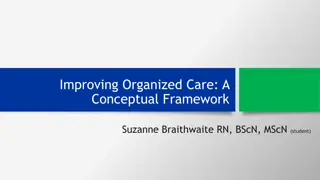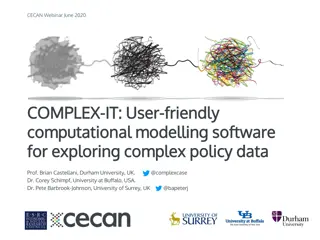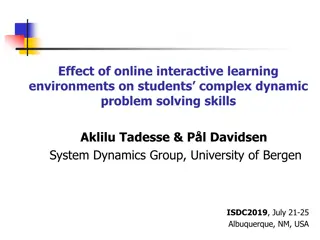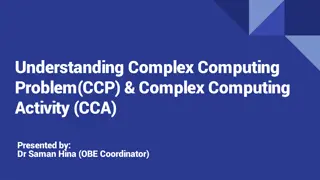Leveraging Complex Care for Rich Learning in Pediatrics
Complex pediatric cases in healthcare provide valuable learning opportunities that push professionals outside their comfort zones. Reflecting on such cases allows for a deeper understanding and growth as a doctor, leading to enhanced confidence and holistic care practices.
Download Presentation

Please find below an Image/Link to download the presentation.
The content on the website is provided AS IS for your information and personal use only. It may not be sold, licensed, or shared on other websites without obtaining consent from the author. Download presentation by click this link. If you encounter any issues during the download, it is possible that the publisher has removed the file from their server.
E N D
Presentation Transcript
Principle 2: Complex care provides rich learning opportunities
Principle 2: Complex care provides rich learning opportunities In paediatrics we frequently come across complex cases These cases can be both the most interesting and frustrating parts of our job and they tend to push us outside of our comfort zone It is important to reflect on these cases as complex care provides rich and diverse learning opportunities We will often find they offer us several learning points and help shape us into more confident, considerate and wholistic doctors
Step 1: select your case Examples of factors that make care complex may include Multiple or significant comorbidities Environmental, cultural or psychosocial barriers Diagnostic uncertainty Complex care Input required from a large multi- disciplinary team Unexpected complications
Step 2: Reflect on what you learned from the case Consider what it was about the case that you found challenging and ask yourself why this was Did you see anybody involved in the case do something particularly well that you might change your approach in futures Did you gain a different perspective by listening to the patient/ family's experience Did you have an opportunity to carry out a role in the case that was different to your usual role Did you have an opportunity to carry out a procedure or examination that you were less confident
Step 3: Translate your experience into a learning opportunity The role of the trainer is to encourage the trainee to consider the wider learning points from the case. The trainer may complete a mini-cex or ACAT, if the trainee was directly observed managing an aspect of the case or a CBD if discussing case retrospectively. A DOC or HAT may also be a useful way of encouraging the trainee to develop skills in communication of complex cases with other professionals For trainees, personal reflection on complex cases can be beneficial, particularly in looking at human factors and how they may have influenced your approach
Step 4: Link to the curriculum Look at the curriculum and link your assessment to the relevant domains Its worth looking through all domains to see if there are any aspects of your complex case that you hadn't considered. TOP TIP: It is often complex cases that provide opportunities to cover domains that you have struggled to find links for!
Please see the case studies for Principle 2 on the RCPCH website for more
Find out more on the RCPCH website www.rcpch.ac.uk/progressplus
